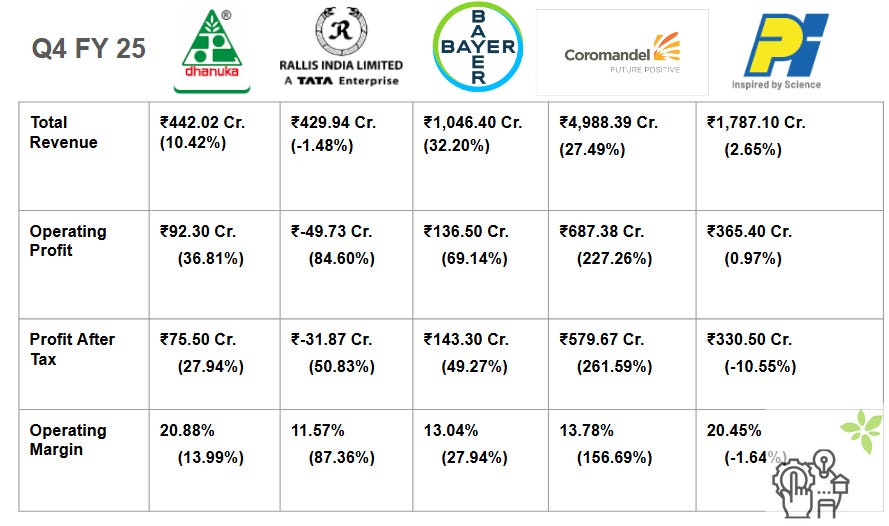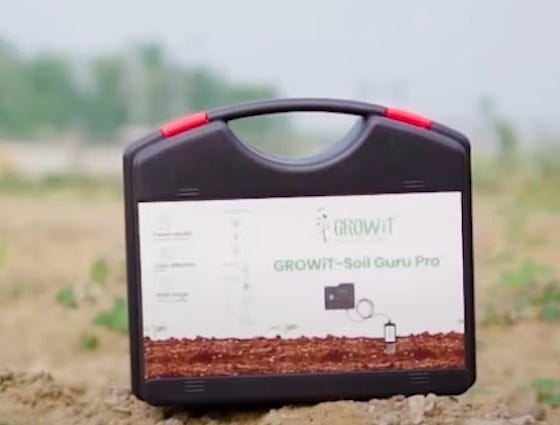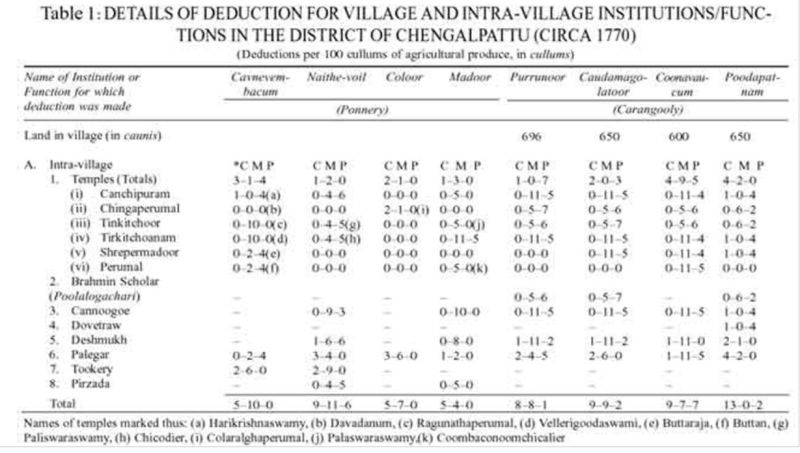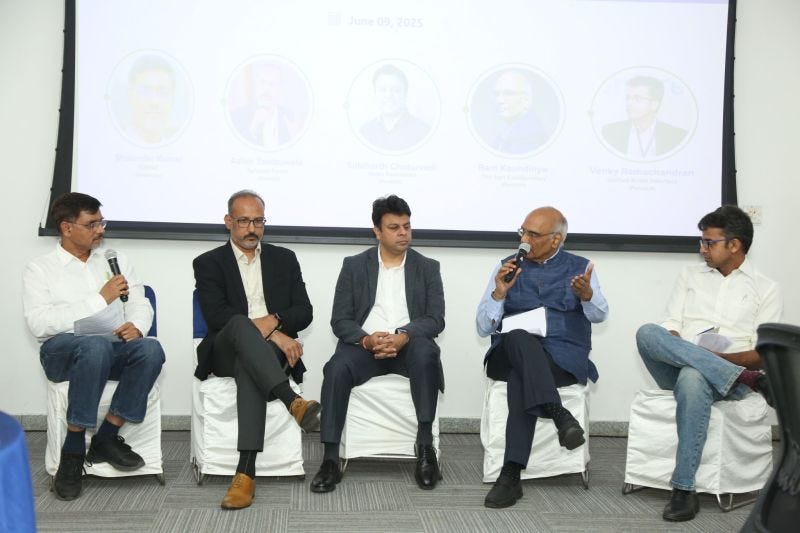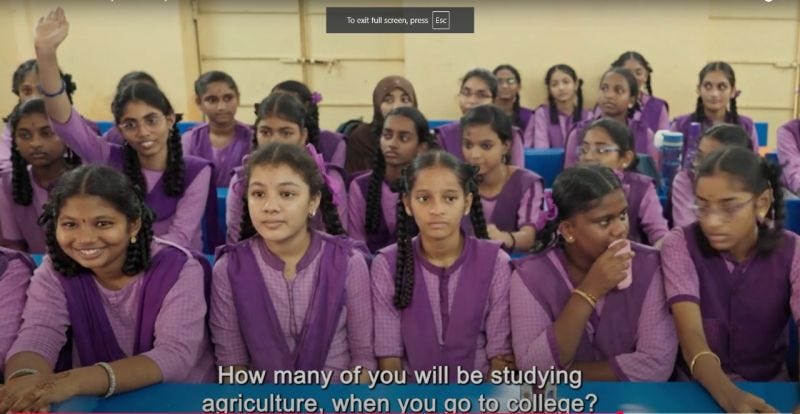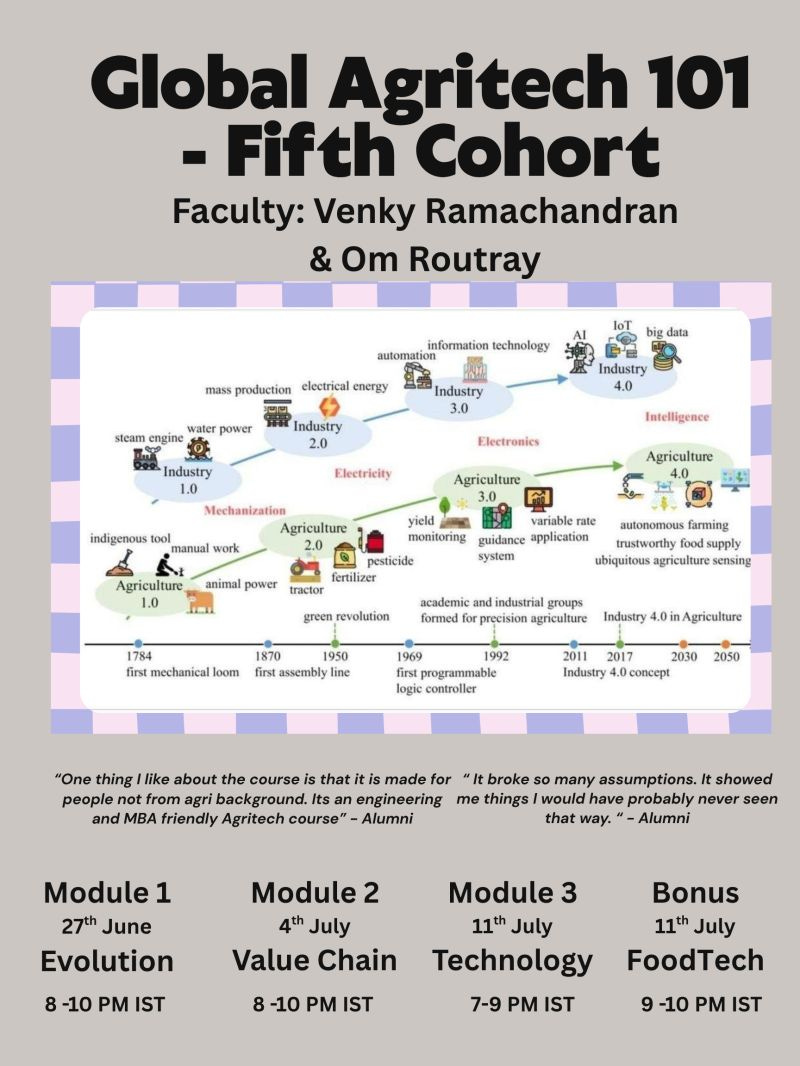Sunday Reflections (Beggaring History, Agritech-FPO Collaborations, Human Potential in Agriculture)

Dear Friends,
Greetings from Hyderabad, India. My name is Venky. Welcome to Sunday Reflections where I reflect on what I’ve written and ask myself, In doing what I am doing, what am I really doing?
Subscriber-only Plugins
Q4 FY25 Results: Dhanuka Agritech Vs Rallis India Vs Bayer India Vs Coromandel India Vs PI Industries
In comparison with the players I had considered in my Q4 FY24 analysis last year, I have reduced the number of players to make it more apple: apple comparison for the players based on the field they are playing in.
In Q4 FY25 (Jan–Mar 2025), four of the five agrochemical companies delivered year-on-year (YoY) revenue growth, led by Bayer India and Dhanuka Agritech. Bayer’s Q4 standalone net sales surged 32.1% YoY to ₹1,046.4 crore, while Dhanuka’s Q4 revenue grew 20.0% YoY to ₹442 crore.
Coromandel International saw Q4 income rise 27% YoY to ₹5,113 crore (standalone). PI Industries had modest growth of ~3% YoY in Q4 revenue (₹1,787 crore), reflecting a high base and softer export prices, whereas Rallis India’s revenue was flat at ₹441 crore (vs ₹442 crore in Q4 FY24) amid pricing pressure in its crop care segment.
More analysis on the leading players, their strengths, common threads and divergences in a recent subscriber-only edition of Agribusiness Matters.
Protected Cultivation’s Achilles Heel🚯: Microplastics
GROWiT, Agricultural arm of Alpha Plastomers Private Limited, wants to sell compact-soil testing devices and build their protective farming platform. They recently launched their (5-15K INR range?) soil testing device that claims to measure NPK, soil moisture, EC, and pH. They raised $3Mn recently.
Their core business is in selling plastic mulch films and through the fundraise, GROWiT wants to expand its ‘650-odd franchise network’ and scale its growth, currently spread ‘across 12 states’. They are currently targeting the African Market (as many Indian agritech cos are at the moment) for scaling their growth.
I chatted with Saurabh, CEO of GROWiT few moons ago and our conversation was focused on the biggest elephant in the room: Impact of Microplastics in Photosynthesis.
More in a recent subscriber-only edition of Agribusiness Matters.
Elevarm's 2024 Impact Report🎯Analysis
I haven’t covered Indonesia’s Agritech scene adequately enough. And so, it was fascinating to study Elevarm’s 2024 Impact Report
✅ Net income increased by 6–31%, across multiple commodities
✅ Average net disposable income increased by 19.10%, providing a greater financial buffer for our farmer partners
✅ Informal lending reliance dropped from 30.67% to 10.16%, easing the financial burden on farmers caused by high interest rates and unfavorable loan terms
✅ Capital efficiency improved, reducing required capital by 22.5%
✅ Farm labor rose by 33.4%, creating opportunities for over 6,300 rural workers
✅ Chemical inputs cut by 14%, driven by vermicompost-based practices (Source)
How did farm labour rise by 33.4% when their model -sustainable inputs, inclusive partnerships, and market infrastructure- is centered around a) farmer engagement models and plantation models?
I spoke with Elevarm’s CPO Bayu to find out.
More in a recent subscriber-only edition of Agribusiness Matters.
Beggaring History
I get extremely triggered whenever someone says in conferences, "We [Indian Agriculture] started from Ship to Mouth". Have we seriously considered the impact it creates in young minds?
Try telling a child, "You were a beggar when you were born". You will raise the child to be diffident and totally dependent.
Almost any conversation about History of Indian Agriculture starts with how we were beggars in the past, begging for food aid from US until the miraculous Green Revolution came along and transformed Indian Agriculture.
No wonder, youngsters don't want to enter agriculture, dissuaded by their own parents who are farmers. Because what are we saying? Our ancestors were idiots until technology came to our rescue.
Is it so hard to find out that our yields were much higher in the past?
Stone inscriptions in Tanjore show that between 9th to 12th century, paddy yields were 12-18 tonnes. In Southern Arcot regions, an inscription that belonged to 1100 has documented 14.5 tons of paddy yield. In 1325, in drought prone Ramanathapuram district, stone inscriptions have documented 20 ton paddy yields.
Contrast with today's yields and you will know what I am talking about.
Forget stone inscriptions.
What has British archives documented about the history of rural India?
Britishers conducted survey of about 2000 villages of the Chengalpattu district during the 1760s and 1770s. The survey not only recorded the total land, but more importantly the deductions from the total agricultural produce of the village, for the maintenance of the various institutions and infrastructure of the village, and for intra-village institutions and offices.
As Dharampal writes,
"The shares of the produce that were allocated for different functions and different institutions evidently had been determined by ancient custom and usage. This sharing was clearly not merely an economic arrangement, but was a way of defining the role and importance of the various recipients in the village or regional polity. "
Today, we talk about Beckn Protocol and creating unified agricultural network through internet infrastructure.
Back in the 1770s, we had a real-life unified agricultural interface network that worked on a hyperlocal village level with proceeds from the agricultural produce moving towards various parts of the village infrastructure.
We have to live in the present and work towards the future. Why should we have to be amnesiac about our past?
P. S. I plan to do a webinar next Monday on this with more detailed evidences to present a different narrative to compost our relationship with the past. If you're interested, sign up
Orchestrating Agritech - FPO Partnerships
Had the opportunity to participate in a panel discussion on "Policy & Market Support for Agri-Tech in the FPO Sector" with Shalander Kumar, Azhar Tambuwala, Siddharth Chaturvedi, Ram Kaundinya organized by ISB Centre for Business Innovation in collaboration with Samunnati.
I emphasized on the importance of building ecosystems to strengthen the FPO sector to increase trust and make it a win-win for everyone, including farmers. I also talked about our efforts in Unified Krishi Interface in strengthening the agritech ecosystem for the betterment of farmers.
FPO Sector today is at a phase where a lone Vishwanathan Anand (the equivalent of Sahyadri Farms today) stood out in the Chess scene during the nineties. It took two decades of intensive ecosystem building (through corporate sponsorships, training infrastructures) to create an assembly line of Grand Masters in India. Without investing in underlying infrastructure, we cannot expect miracles.
I also talked about the underlying conflict of interest between agritech startups and FPOs and why it is essential to distinguish between public problems and private problems and create boundaries (Chinese boundaries between financing and trading) that create trust battery for FPOs to engage with agritech startups without fear or anxiety.
Today, the distinction between for-profit and not-for-profit, formal and informal sector, public problems and private problems are getting blurred. In such an environment, it is therefore important to draw boundaries with skin in the game that creates a conducive environment for the long term growth of the sector.
Discovering Human Potential in Agriculture
This image from a recent documentary stayed in my mind for a very long time.
Those who work in this industry know the acute talent scarcity this sector faces. When twenty somethings prefer to run a mobile shop, but not a farm, we know that we haven't done a great job in marketing agriculture. And even those who study agriculture, often end up studying for the sake of civil services preparation.
During the year 1946, JC Kumarappa wrote a timeless piece on Agricultural Colleges in India
"The real agriculture college must be situated in rural areas; their buildings, etc., should be in consonance with their surroundings and in keeping with the standards prevailing among the people they profess to serve. The principals and professors must themselves be cultivating farmers. They may well be allotted a certain acreage, out of the produce of which they can support themselves.
"Their activities must be confined to the needs of the people and chiefly limited to food production, short-staple cotton and such other materials in demand in the villages. They should take the lead in the supply of selected seeds and in grain storage. The medium of instruction should be the language of the locality. The student themselves would then be prospective farmers instead of job-seeking city young men whose one aim is a degree of some kind."
Ideal thoughts, but if serious Agripreneurs read this 1946 tract, they could get inspired. I was pleasantly surprised to discover Kaveri University, from the founders of Kaveri Seeds.
What can folks like you and me do? I know many Agripreneurs like me who take their children to farms during weekends. When I hastily ordered Flintobox.com children toy kits after learning of their imminent shut down, I was surprised to see that they had built good mini irrigation and hydroponics kits. My son has been playing with these. I also recently bought him Crazy coconut's DIY Coconut Shell kits.
Agripreneurs could come up with such kits that help them illuminate various facets of food and agriculture systems. Who knows what could spark these young minds?
Not many know that Bird Watching is not more than fifty years old activity that has done innumerable wonders for conservation of birds, environment and rekindled the joy of spending time in nature.
Farm visits could do equal wonders for agriculture what bird watching did for environment.
Every now on then, I see stories of familiar concerns: Farmers ageing (average age around 50); new generation disinterested to pursue agriculture.
Let's face the fact: Twenty years down the line, the number of farmers will come down, India will have large lands of corporate farming clusters and farmers who are serious about farming will do some or the other form of regenerative/agroecology/organic.
This transition is inevitable. Who are the dreamers working towards bringing more youth onto serious form of farming?
Ex-Post Facto:
a) Ananth wrote a fascinating comment in response to my piece with a lot of ideas:
“1: Succession Planning for Existing Farmers [Many in the west offer this counselling+ so farmers can plan for their farmland to be appropriately inherited (and continue as farm) so it doesn't end up in court disputes/family fights being frozen.
2: Land Match for New Farmers: A somewhat organized approach to leasing farm lands for new farmers.
3: Urban Farm in Each City/Town [Demo Farm, Childrens Garden, Classes, Public Community Support Agriculture [CSA]/School Program, Volunteering]
4: School Gardens [PM SHRI Central Govt scheme is supporting this in Schools]. Swayam Shikshan Prayog SSP, Sahayak Trust in India in Kitchen/Nutrition Gardens. The Edible Schoolyard Project is the pioneer.
5: NGOs like Future Agriculture Leaders of India should be a movement
6: Tech savvy farmers should be in WWOOF India
7: Uni/School Farm Robotics/UGV/UAV competitions must happen
References:
1: Young Agrarians (Canada) 2: SW Land Match (UK)
3: American Farm Land Trust (US)
4: National Young Farmers Coalition (US)
5: Farm Robotics Challenges [US]
b) Ridu Varshini wrote about her approach to introduce gardening to kids
<Announcement>Global Agritech 101 - Fifth Cohort
Om Routray and I are excited to facilitate the Fifth Cohort of Global Agritech 101 after a brief hiatus.
A lot has changed in the agritech-foodtech-climate tech ecosystem and we are rebooting our course pedagogy from ground up. The feedback we've received incredible cohort of alumni (Link in the comments) who've been part of the four cohorts so far has further spurred us to up the game.
We cover three modules
Module 1: Evolution - 27th June 8-10 PM IST
Module 2: Value Chain - 4th July 8-10 PM IST
Module 3: Technology - Plus Bonus Hour: Food Tech - 11th July - 7-10 PM IST
When you sign up for the course, you get to become a part of the alumni community comprising VCs, Entrepreneurs, Ex-Entrepreneurs, Large Agri-Input Cos Executive Leadership, Climate Tech Founders.
Three Fridays - 7 Hours - Reference Materials- Active Community of Fellow Seekers and Learners - And Whole Lot of Fun
Fees: 10 K INR (Inclusive of GST) Registration: Stripe Link and UPI Payment Ids (venkat.raman.kr@icici) | Alumni Testimonials
So, what do you think?
How happy are you with today’s edition? I would love to get your candid feedback. Your feedback will be anonymous. Two questions. 1 Minute. Thanks.🙏
💗 If you like “Agribusiness Matters”, please click on Like at the bottom and share it with your friend.


